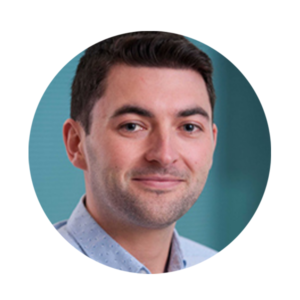BOOKINGS CLOSED
We have taken the title of the 2023 Jack Tizard Memorial Conference from a current WHO review by Professor Mark Bellis and colleagues from the Collaborating Centre on Investment for Health and Wellbeing. The idea of taking stock, and reviewing our thinking about Adversity, Trauma and the mental health and well-being of children and young people is a timely theme. We are seeing an exponential rise and persistence of children and young people’s mental health problems – associated with exposure to the extreme adversity the disruption their lives of the pandemic, the cost of living crisis, effects of wars, refugee crises, earthquakes, and climate events.
Booking
BOOKINGS CLOSED
To book simply click the button at the top of the page this link or the Book Now button at the top of the screen, and complete the form that follows.
£99 ACAMH Members
£139 Non Members
£5 – ACAMH Undergraduate & Masters Members, at all times
FREE to our ‘Low-Income Countries’ Members
All delegates get access to recordings and slides for 90 days.
Don’t forget as a charity any surplus made is reinvested back as we work to our vision of ‘Sharing best evidence, improving practice’, and our mission to ‘Improve the mental health and wellbeing of young people aged 0-25’.
To book simply click the button at the top of the page, or this link, and fill in the details. ACAMH Members should sign in first to ensure that they get their discount. If you are not an ACAMH Member now is a great time to join and make a saving on this event. Take a look at the different levels of membership on offer.
- PLEASE NOTE: BOOKINGS CLOSED
About the talks
Professor Mark Bellis – ‘ACEs – understanding and addressing the multi-sectoral consequences and costs of avoidable childhood adversity’
It has been 25 years since the term ACEs or Adverse Childhood Experiences was first introduced into health literature. Over that quarter of century, an ACE perspective has helped develop a collective understanding across health, educational, social, criminal justice and other services of how adversity in childhood can affect health and behaviour throughout childhood, adolescence and in later years. Exposure to ACEs however, has been shown to be far from deterministic of poorer outcomes with, for instance, factor elevating individual and community resilience offering some protection against the negative impacts of ACEs. Drawing on an overview of ACE related studies to date and a new ACE report with the World Health Organization, the presentation will provide examples of relationships between ACEs and impact on different areas of public sector interest. It will consider developing prevention, resilience and trauma informed sectors as response to ACEs, utilising ACE studies and finding from others that have tackled ACE related issues but may not have used the same terminology. The presentation will consider gaps in the ACE evidence base but also provide some examples of regions that have used the considerable evidence already available to invest substantively in ACE informed approaches.
Learning objectives
- Understanding range of issues that Adverse Childhood Experiences (ACEs) can impact across the life course covering health, educational, social, criminal justice and other service areas.
- Providing an overview of options to mitigate ACEs including aspects from literature published outside of the ACE terminology.
Dr. Jessie Baldwin ‘To what extent do adverse childhood experiences cause mental health problems?’
It is well established that ACEs are associated with mental health problems. However, the extent to which ACEs cause mental health problems is unclear. In this talk, I will first explain why the associations between ACEs and mental health may not be fully causal. I will then outline how quasi-experimental methods can strengthen causal inference about the effects of ACEs, before reviewing evidence from such quasi-experimental on ACEs and mental health. Lastly, I will highlight future research directions needed to strengthen our understanding of the extent to which ACEs cause mental health problems.
Learning objectives
- To understand the challenges of causal inference in observational research on ACEs.
- To understand study designs that can strengthen causal inference about the effects of ACEs on mental health.
- To understand current evidence from quasi-experimental studies about extent to which ACEs cause mental health problems.
Professor David Finkelhor ‘Screening for ACEs – the challenges and opportunities’
Does the research on ACEs suggest the utility of screening for these experiences in various pediatric, educational, medical and mental health settings? The literature on screening suggests a number of concerns need to be addressed before concluding that ACE screening has clear benefits in different populations.
Learning objectives
- To be familiar with some of the ACE screening practices being put in place.
- To understand the limitations of the logic model in regard to screening.
- To be able to identify the kinds of evaluation outcomes that need to be observed to insure more benefit than harm from screening practices.
Dr. Alan Meehan ‘Individual risk prediction from ACEs: Recent research and future directions’
Adverse childhood experiences (ACEs) have been consistently linked with a range of mental and physical health problems that can persist well into adulthood, prompting calls from some quarters to implement routine ACE screening within paediatric health settings. However, although ACEs do appear to characterise a specific at-risk population, growing evidence from longitudinal cohort studies from several countries has cast doubt on the ability of ACE-based screening questionnaires to accurately identify health risk at an individual level. My talk will provide an overview of recent research from our own group that has formally tested the ability of the conventional ‘ACE score’ to accurately classify individuals based on their risk for mental and physical health difficulties. This includes analyses that revisited data from the seminal 1998 ACE Study, in which both the continuous ACE score and the recommended clinical cut-off for ‘high-risk’ ACE exposure (4+ vs 0-3 ACEs) demonstrated poor discrimination of adults with and without various health conditions. I will discuss the wider implications of these findings for proposed ACE-based screening and treatment-planning initiatives, and highlight alternative approaches to enhancing the risk detection ability of ACE measures based on novel prediction modelling and machine learning techniques.
Learning objectives
- To recognise the distinction between population and individual risk in the context of adverse childhood experiences (ACEs)
- To understand recent empirical evidence into the prediction of individual health risks using ACE scores
- To evaluate new statistical approaches that may enhance ACE-based risk detection for children and young people
Professor Judith Cohen – Trauma-Focused Cognitive Behavioral Therapy: Research and Applications Update
Trauma-Focused Cognitive Behavioral Therapy (TF-CBT) is an evidence-based treatment (EBT) for youth ages 3-18 years and their parents or primary caregivers. This talk will briefly review the basic components of TF-CBT, which includes 9 core components summarized by the acronym PRACTICE, contained in 3 phases, as well as 5 grief-focused component summarized by the acronym GRIEF. It will then provide a brief update about 5 recent TF-CBT research studies, including methods, instruments, comparison treatment (if applicable), outcomes and take-home message for each study. These studies include TF-CBT for the following populations: 1) youth with complex trauma; 2) youth with traumatic grief; 3) transition age youth (15-25 years); 4) providing TF-CBT via telehealth; and 5) a TF-CBT dissemination project in Ukraine. Finally, the presentation will describe new TF-CBT clinical applications for the following populations: 1) LGBTQ youth including integration of core principles from the Family Acceptance Project; 2) commercially sexually exploited youth; and 3) integrating TF-CBT+ racial socialization for traumatized Black youth. For each of these, implementation manuals are available
Learning objectives
- To describe core Trauma-Focused Cognitive Behavioral Therapy (TF-CBT) PRACTICE and GRIEF- focused components.
- To describe recent TF-CBT research findings.
- To describe recent TF-CBT clinical applications.
Dr. Fiona Turner and Gary Kainth
The BeST? services trial tests the introduction of an infant mental health approach to assessing and treating cases of abuse and neglect in under 5’s in two sites in the UK. The infant mental health teams, based on the New Orleans Intervention Model in the US, are compared against an enhanced social work ‘services as usual’ on the outcomes of child mental health and time to permanent placement. Running alongside the trial is a process evaluation which aims to capture the potential impacts of the contexts in which the UK infant mental health teams are embedded. Whilst we await the outcomes of the main trial, this presentation presents the rationale for the trial and various aspects of contextual influence that have been unearthed to date. One particular aspect of context is the UK foster care system and the presentation will present mixed-methods findings on the impact of short-term foster care on child mental health.
Learning objectives
- To understand the rationale for, and approach of, the BeST? services randomised controlled trial.
- To appreciate the multiple contextual influences on cases of abuse and neglect and their potential impacts on the intervention and outcomes of the trial.
- To learn about the impact of the child-foster carer relationship on the mental health of young children in care as one outcome of the trial thus far.
Dr Kirsten Asmussen
Children who have experienced abuse, neglect and other adverse life experiences are amongst the most vulnerable in society. The circumstances leading to this situation are never positive and frequently involve high levels of family dysfunction and economic deprivation. Effective policies and interventions are therefore necessary to prevent child maltreatment and improve the circumstances of vulnerable children. This presentation considers what these interventions and policies might. It includes activities with evidence of preventing child maltreatment from happening in the first place, as well as interventions with evidence of stopping or reducing its impact when it does occur.
Learning objectives
- Understand why effective services for vulnerable families are needed
- Understand what effective services could achieve at the universal and targeted levels
- Increase knowledge of specific interventions and the ways in which they might achieve improved family outcomes at the population level.
Joanne Hopkins
She will be presenting developments in the whole school approach to ACEs awareness and trauma informed practice in Wales in educational settings. Comprehensive ACE awareness and trauma informed practice training programs increase staff understanding of the impact of ACEs and their impact and how to help children build resilience. The training has been delivered to primary and secondary schools throughout the country, preschool settings, parents group and the approach taken forward with education colleges and universities, with a view to the whole education sector in Wales being ACEs aware and trauma informed.
Programme
Thursday 22 June
13:00 Room opens
13:15 Welcome
13:20 Professor Mark Bellis – ‘ACEs – understanding and addressing the multi-sectoral consequences and costs of avoidable childhood adversity’
13:50 Q&A
14:05 Dr. Jessie Baldwin – ‘To what extent do adverse childhood experiences cause mental health problems?’
14:35 Q&A
14:50 Break
15:05 Professor Judith Cohen – ‘An updated review of Trauma Focused- Cognitive Behavioural Therapy (TF-CBT)’
15:35 Q&A
15:50 Dr. Fiona Turner and Gary Kainth – ‘Improving the mental health of maltreated infants in care: What’s BEst? ‘
16:20 Q&A
16:35 Closing comments
16:40 End
Friday 23 June
13:00 Room opens
13:15 Welcome
13:20 Professor David Finkelhor – ‘Screening for ACEs – the challenges and opportunities’
13:50 Q&A
14:05 Dr Alan Meehan – ‘Individual risk prediction from ACEs: Recent research and future directions’
14:35 Q&A
14:50 Break
15:05 Dr Kirsten Asmussen – ‘What works to improve the lives of England’s most vulnerable children: Messages from the evidence’
15:35 Q&A
15:50 Joanne Hopkins – ‘Whole school approach to ACEs awareness and trauma informed practice’
16:20 Q&A
16:35 Closing comments
16:40 End
Programme is subject to change
About the speakers

Professor Mark Bellis is Director of Research and Innovation at Liverpool John Moores University (LJMU) and also leads the University’s Public Health Institute. As Professor of Public Health and Behaviour Sciences at LJMU, Mark undertakes research in Adverse Childhood Experiences, violence prevention, alcohol, drugs and sexual health. Mark frequently works with the World Health Organization (WHO) and has established two WHO Collaborating Centres (in Violence Prevention and, Investment in Health and Well-being). He is a registered Consultant in Public Health in the NHS and has published over 240 academic papers and more than 300 applied public health reports and books.

Dr. Jessie Baldwin is a senior research fellow funded by the Wellcome Trust. She completed her PhD at the Institute of Psychiatry, Psychology, and Neuroscience, King’s College London, before moving to University College London. Dr Baldwin’s research aims to understand the role of adverse childhood experiences in mental health. As part of her Sir Henry Wellcome Fellowship, she is investigating the extent to which adverse childhood experience cause mental health problems. This involves using causal inference methods to disentangle the effects of adversities from other genetic and environmental risk factors. I have experience in family designs (e.g., twin-based methods), polygenic scoring, and statistical approaches (e.g., propensity score matching).

Professor Andrea Danese is a Child & Adolescent Psychiatrist leading the Stress & Development Lab at the Institute of Psychiatry, Psychology & Neuroscience, King’s College London and Maudsley NHS Trust. His research aims to understand how stressful experiences in childhood affect development and later health, and how to best support children who had such traumatic experiences.

Professor Judith Cohen is Professor of Psychiatry at Drexel University College of Medicine in Pittsburgh PA, Medical Director of Allegheny General Hospital Center for Traumatic Stress in Children & Adolescents, and a Board Certified Child & Adolescent Psychiatrist. She is also co-developer of Trauma-Focused Cognitive Behavioral Therapy (TF-CBT), a child trauma treatment with a very strong evidence base that has been broadly implemented and disseminated for diverse populations and trauma types. Dr. Cohen maintains an active clinical and research practice focused on applying, implementing and disseminating TF-CBT particularly for youth at high risk.

Professor David Finkelhor has been working since 1978 on the epidemiology of childhood maltreatment and adversity. He developed the framework and research around the concept of poly-victimization, an important component of the ACEs scholarship. He has developed revised ACE scales, and several articles on issues related to measurement and screening.

Dr. Kirsten Asmussen is a developmental psychologist with expertise in the parent/child relationship and author of the Evidence-Based Parenting Practitioner’s Handbook (Routledge, 2011). Kirsten has extensive experience in assessing and translating evidence about children’s development for policy and practice audiences. Examples of recent ‘translations’ include “Adverse Childhood Experiences: What we know, what we don’t know and what will happen next’ and ‘What works to improve the lives of England’s most vulnerable children?’ Prior to joining the Early Intervention Foundations (now Foundations: What works centre for children and families).

Dr. Fiona Turner is a post-doctoral Research Fellow and Health Psychologist in the Department of Health & Wellbeing at University of Glasgow. Her research areas include child mental health and interventions after abuse and neglect in early life, foster care, neurodiversity and the overlap between trauma and neurodevelopmental conditions.
Gary Kainth is a graduate Research Associate and Social Worker at University of Glasgow working on the BeST? trial. He is currently working towards a PhD investigating the impact of legal decisions on long-term mental health outcomes for maltreated children and he has a broader interest in how the context in which services are delivered influences outcomes.

Dr. Alan Meehan is a Lecturer in Psychology (Education) at the Institute of Psychiatry, Psychology & Neuroscience, King’s College London. His research career has sought to identify processes of risk and resilience for child and adolescent mental health problems, with a particular focus on childhood trauma and adversity. This work has drawn extensively on data from longitudinal cohorts and, more recently, electronic patient records drawn from real-world mental health services. His current research aims to apply novel prediction modelling and machine learning approaches to enhance identification of mental health risk among young people in both community and clinical settings.

Joanne Hopkins is the Programme Director for Adverse Childhood Experiences (ACEs), Criminal Justice and Violence Prevention at Public Health Wales. A former UK government Senior Civil Servant, Jo worked for the Home Office delivering the 2010 cross UK government strategy ‘Together we can end Violence Against Women and Girls’ and then seven years as the senior lead for Wales and Devolution. Jo was seconded to Public Health Wales in 2018 to take on the role of Director of the ACE Support Hub, transforming systems to develop an ACE aware, trauma informed approach across public services, communities, and society.
Booking
BOOKINGS CLOSED
To book simply click the button at the top of the page this link or the Book Now button at the top of the screen, and complete the form that follows.
£99 ACAMH Members
£139 Non Members
£5 – ACAMH Undergraduate & Masters Members, at all times
FREE – International members, at all times
Don’t forget as a charity any surplus made is reinvested back as we work to our vision of ‘Sharing best evidence, improving practice’, and our mission to ‘Improve the mental health and wellbeing of young people aged 0-25’.
To book simply click the button at the top of the page, or this link, and fill in the details. ACAMH Members should sign in first to ensure that they get their discount. If you are not an ACAMH Member now is a great time to join and make a saving on this event. Take a look at the different levels of membership on offer.
- PLEASE NOTE: BOOKINGS CLOSED


